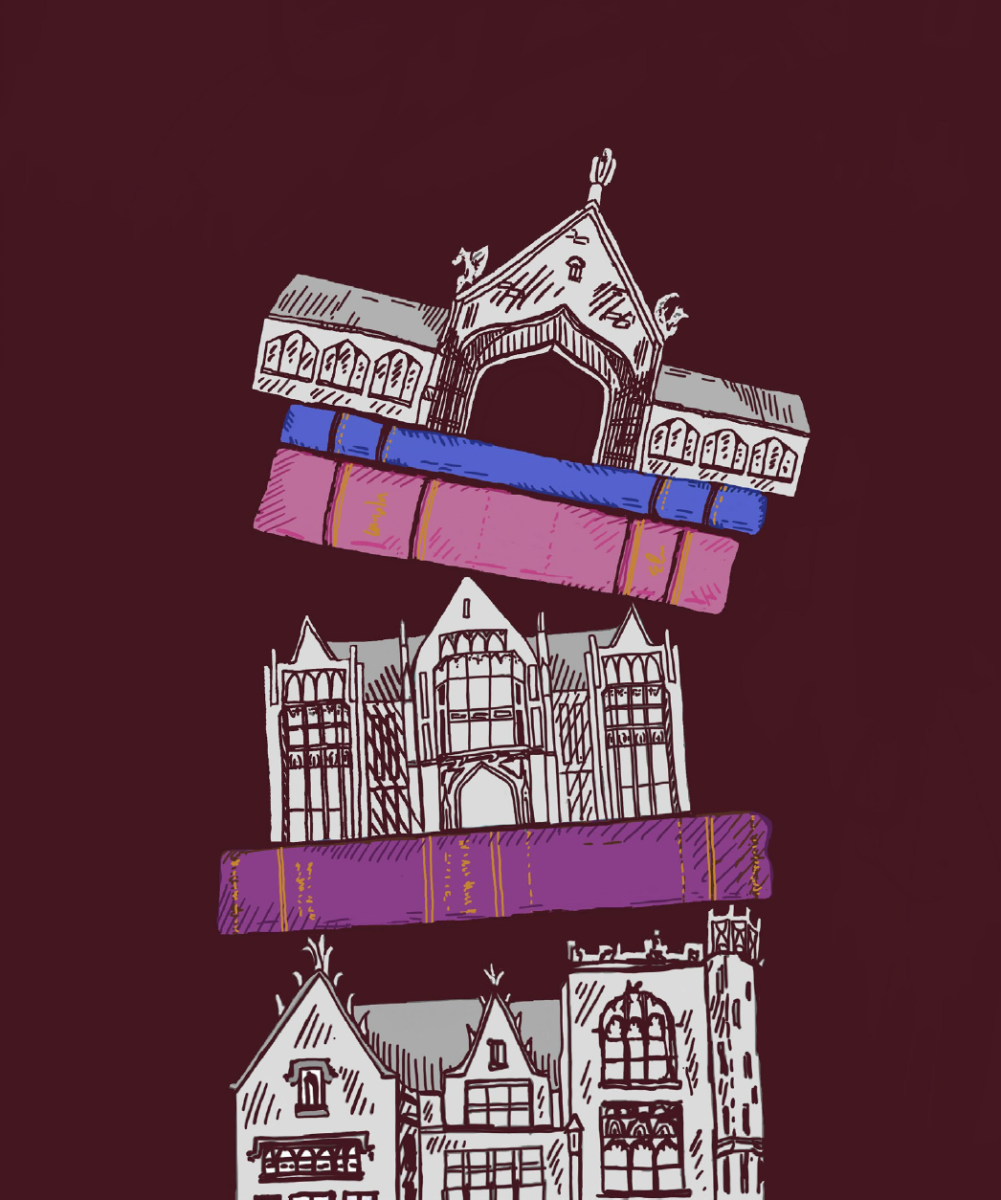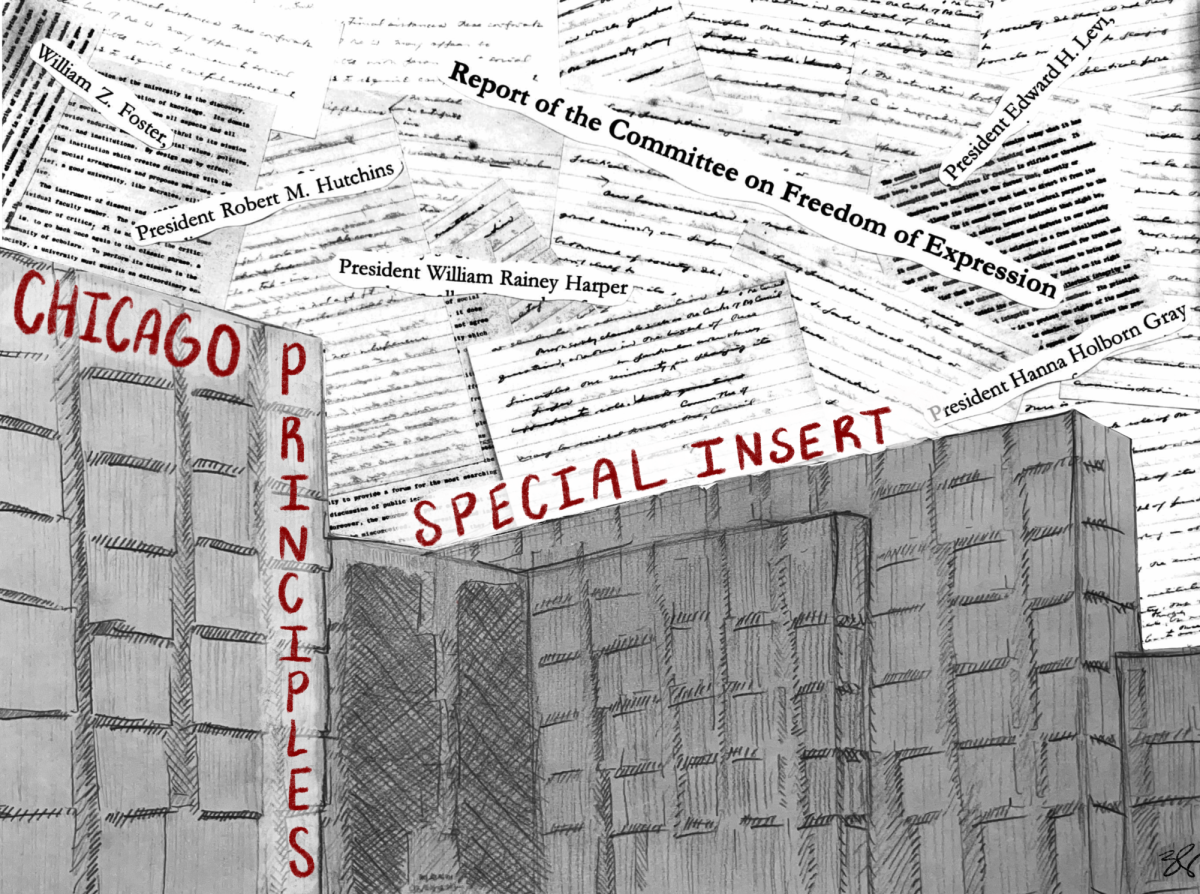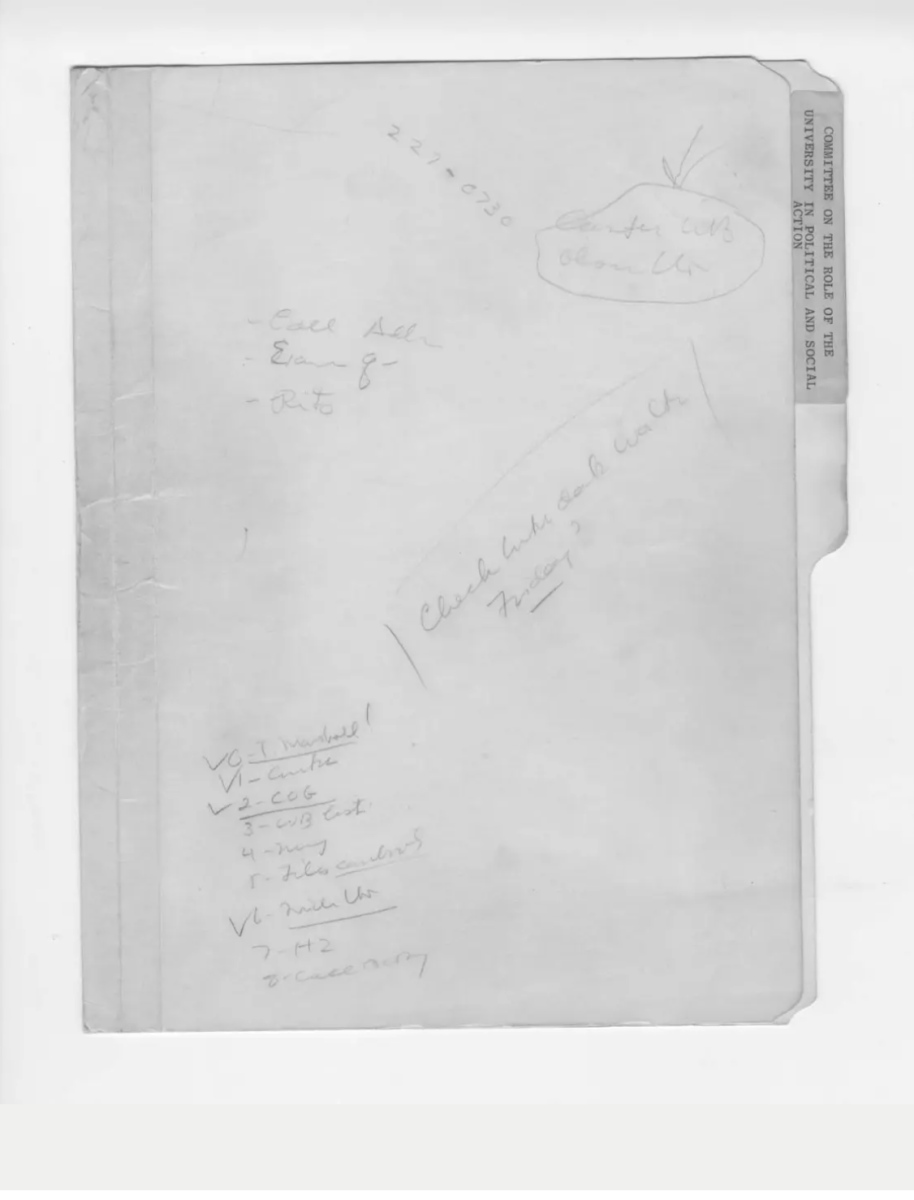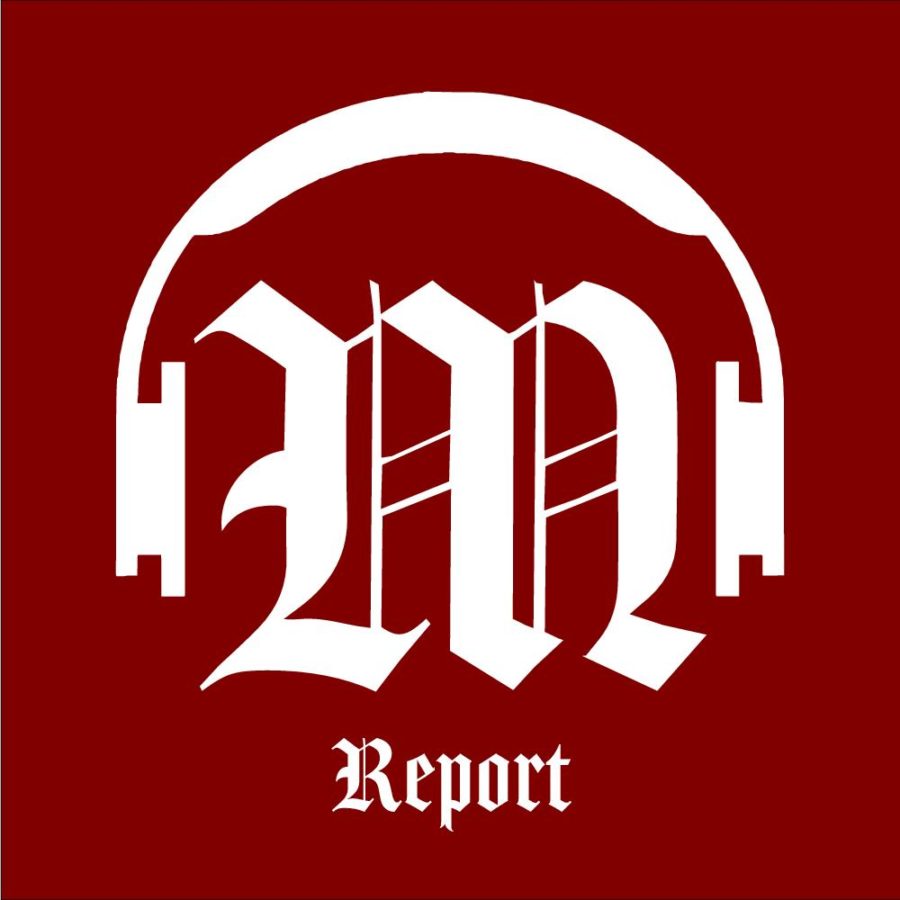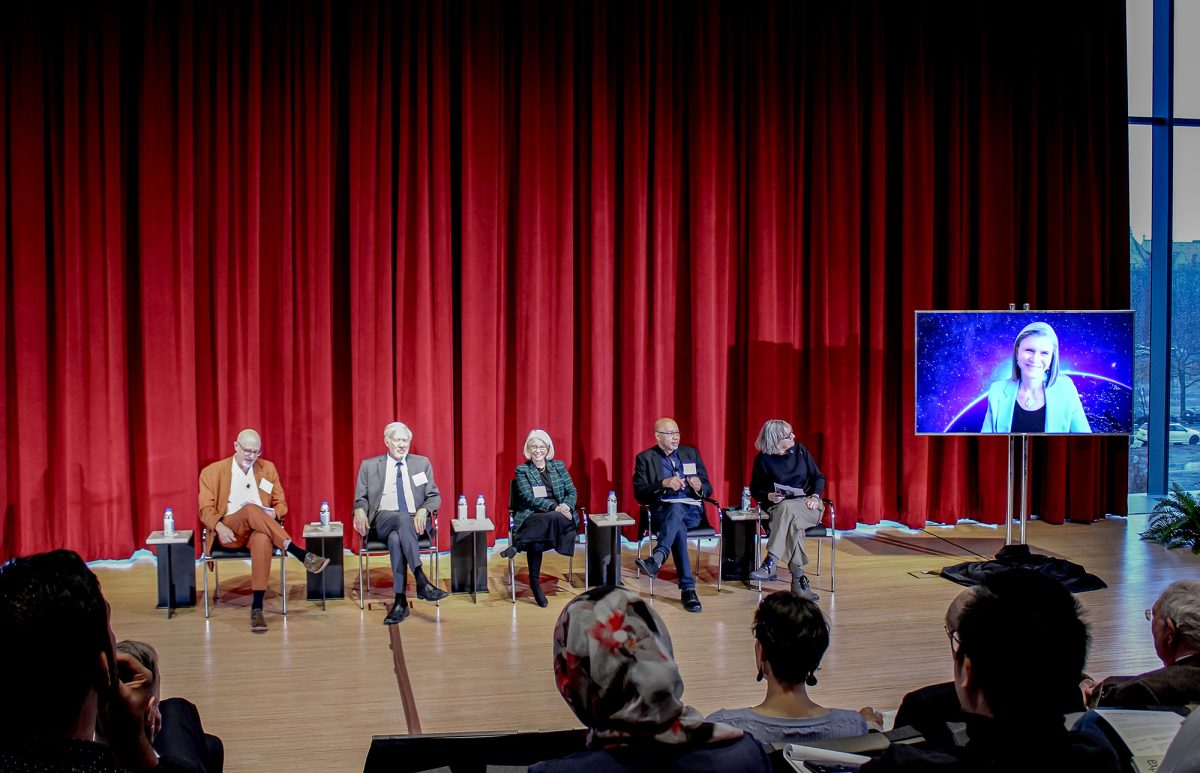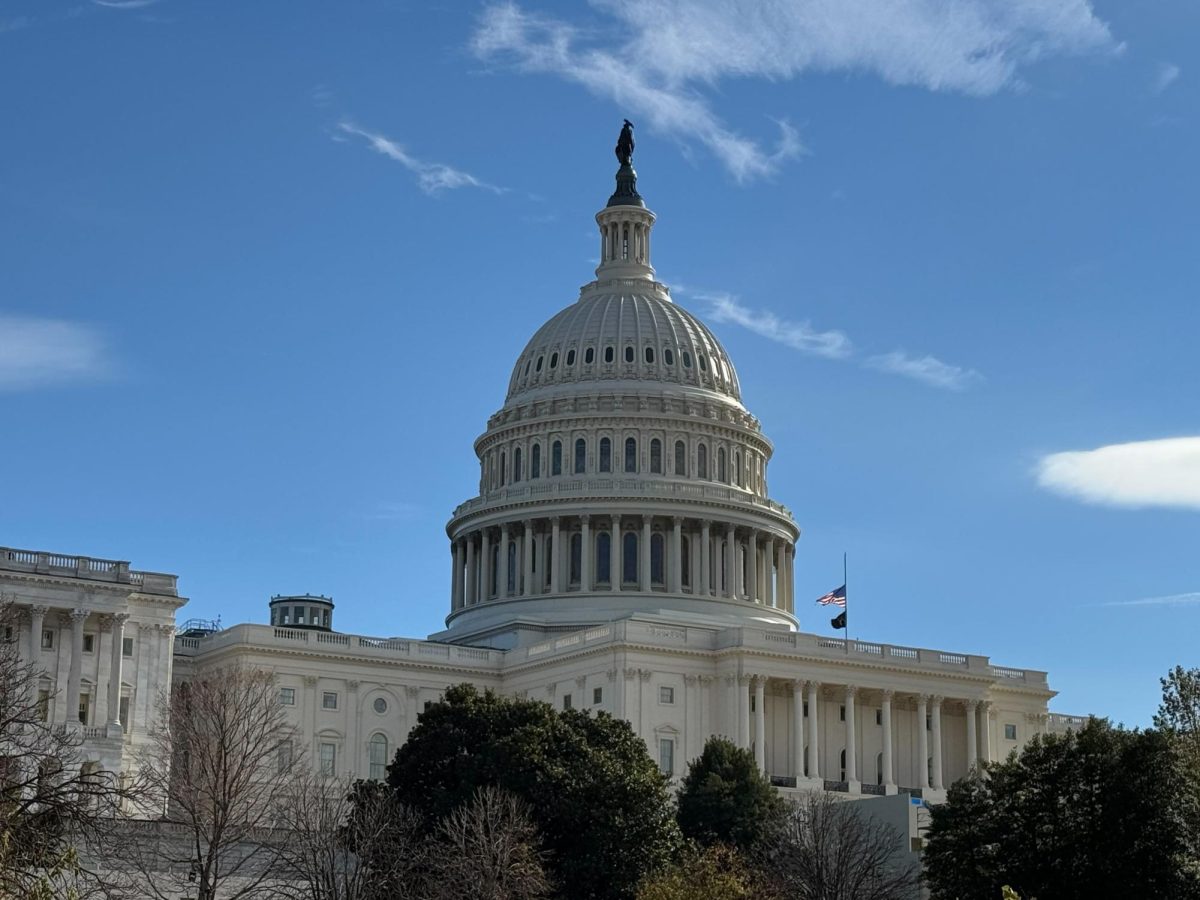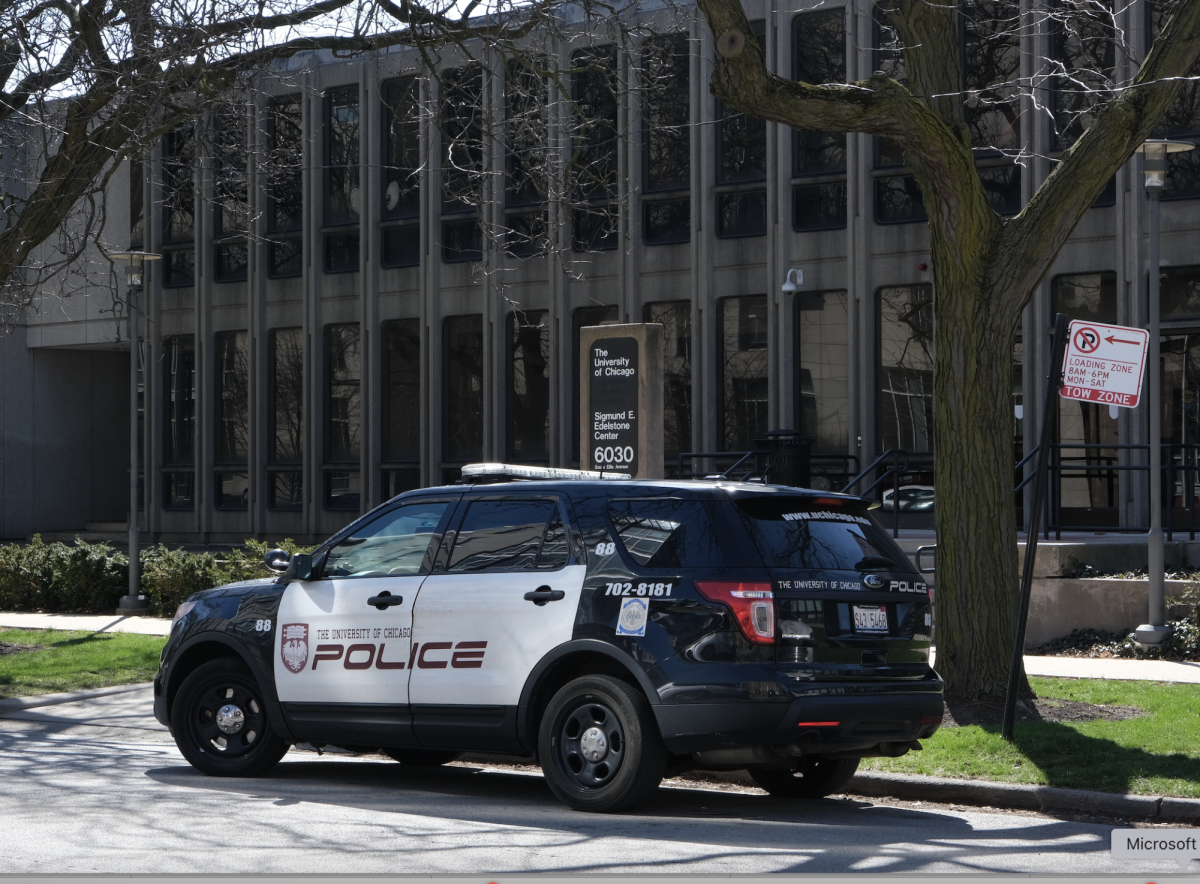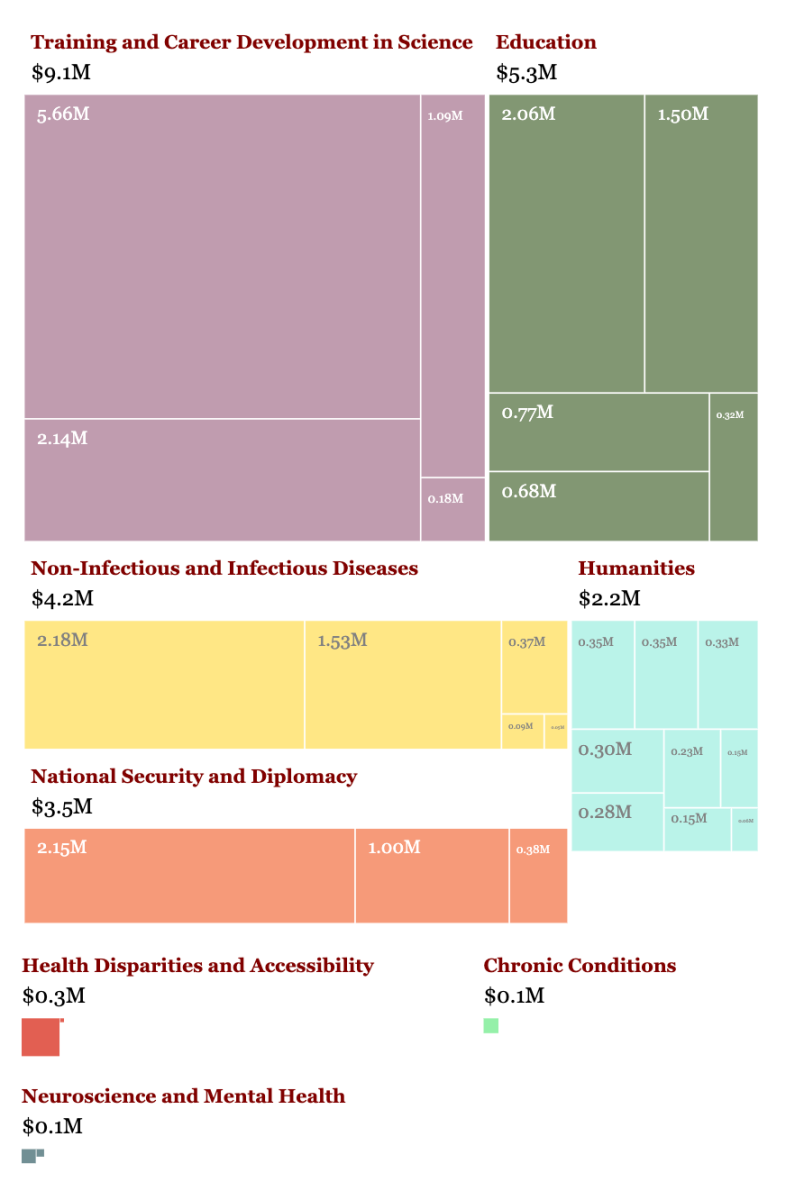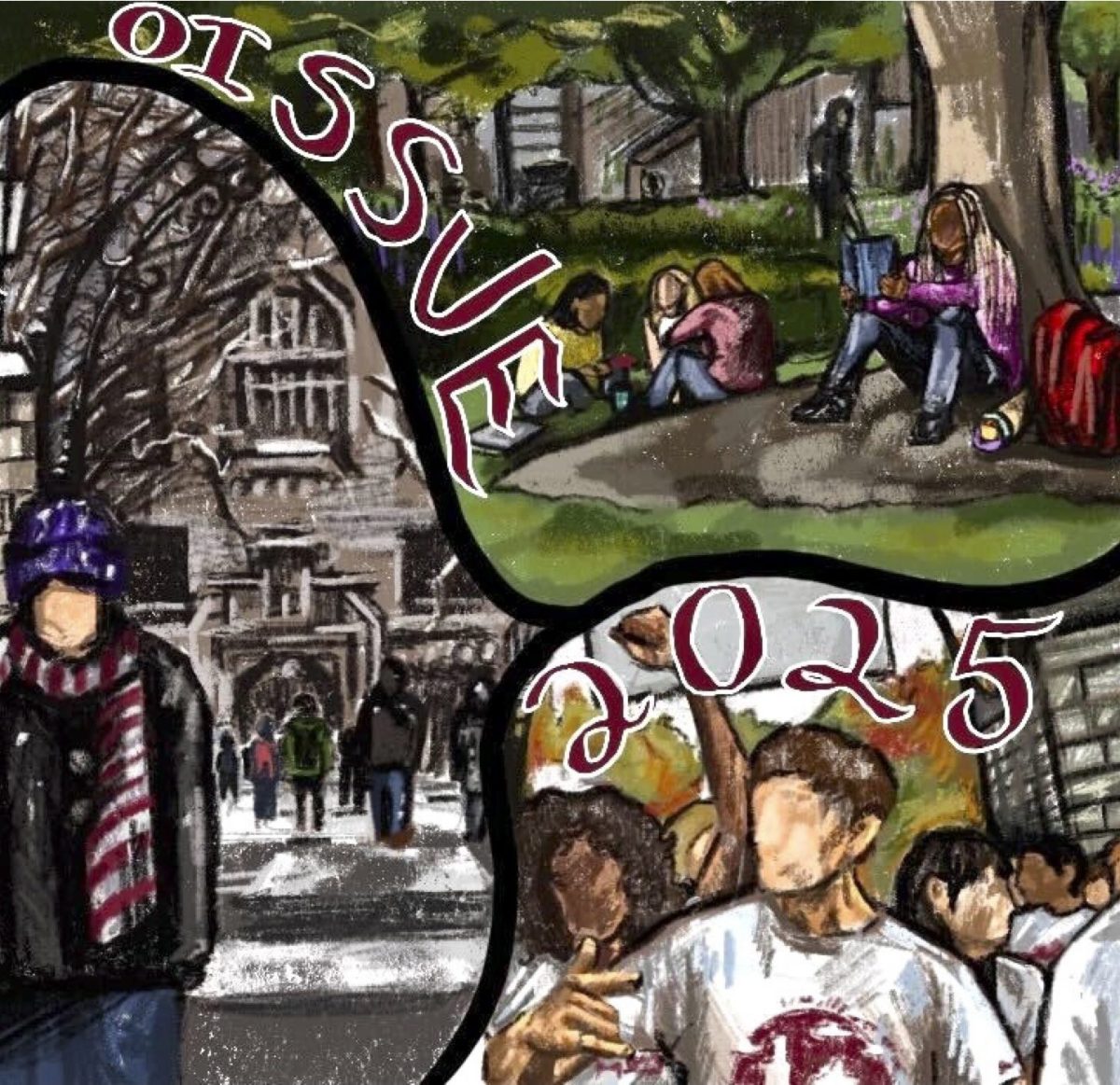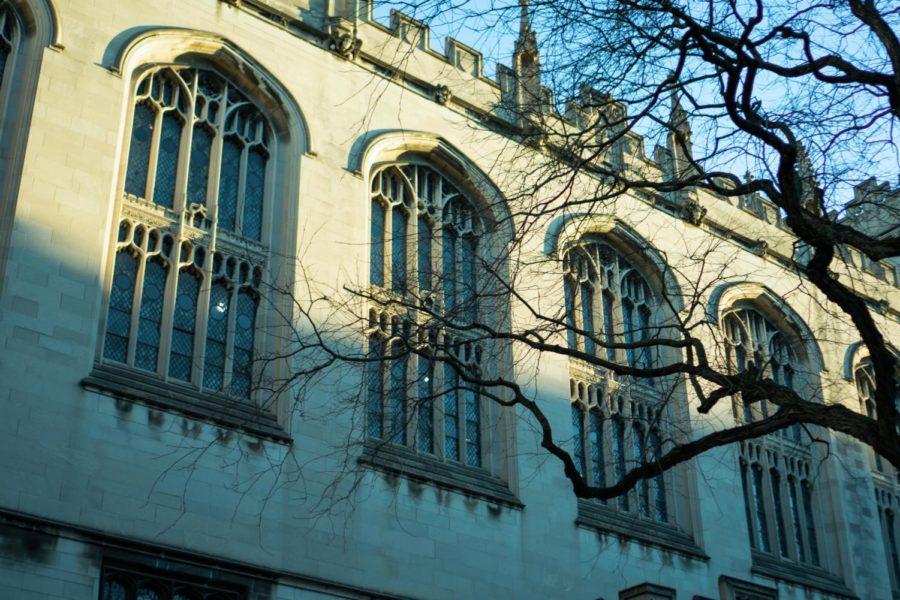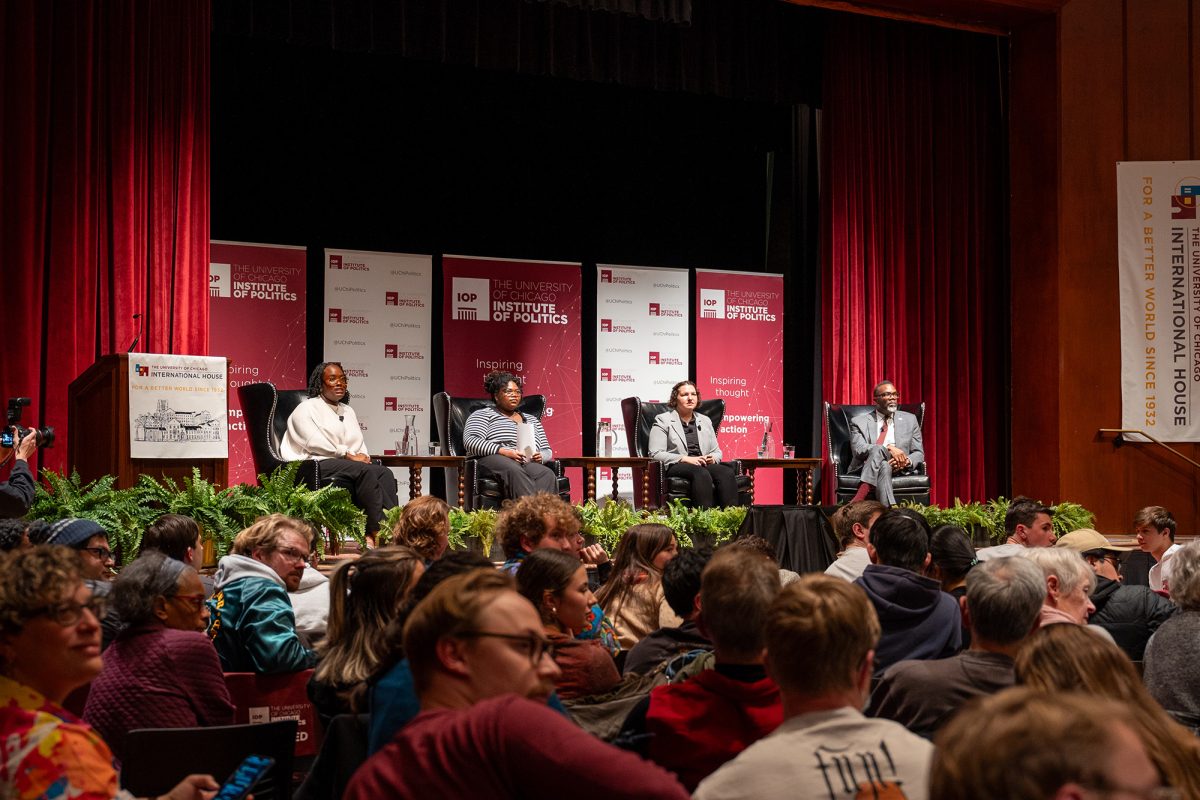In 2016, former Dean of Students John “Jay” Ellison set social media aflame with his letter to the Class of 2020, declaring: “We do not support so-called ‘trigger warnings’… and we do not condone the creation of intellectual ‘safe spaces’ where individuals can retreat from ideas and perspectives at odds with their own.” At the time, this letter sparked widespread debate, earning backlash from some and praise from those who championed UChicago’s commitment to protecting “academic freedom,” both inside and outside the University community.
The letter references several key University documents, including the Stone Report, a document now more widely known as the Chicago Principles.
Written in 2014, the Chicago Principles arose from former University President Robert J. Zimmer and Provost Eric Isaacs’s wishes to formally articulate “‘the University’s overarching commitment to free, robust, and uninhibited debate.’”
“In a word, the University’s fundamental commitment is to the principle that debate or deliberation may not be suppressed because the ideas put forth are thought by some or even by most members of the University community to be offensive, unwise, immoral, or wrong-headed,” the Chicago Principles read.
To that end, Zimmer and Isaacs appointed the Committee on Freedom of Expression, chaired by UChicago Law School professor Geoffrey Stone and composed of seven professors across various University departments. In an interview with the Maroon, Stone explained that the initiative was a manifestation of preexisting values regarding free expression that had been part of the University’s culture since its founding.
The Principles have captured the attention of other institutions of higher education, where similar debates surrounding free speech have emerged over the last 10 years. As of December 2024, 112 universities across the United States have adopted the Principles; Princeton University was the first institution to adopt the Principles in April 2015, while Boise State University adopted them most recently in December 2024.
Yet, even as more institutions embrace the Chicago Principles, recent reports, including one from the Foundation for Individual Rights and Expression (FIRE), have noted dwindling support for free speech on college campuses in recent years.
Recent student protests at Columbia University, an institution with a rich tradition of student activism, highlight the divergent approaches universities take to sanctioning open expression. Scholars from both Columbia and UChicago have questioned whether the Chicago Principles are universally applicable, especially when they were created in the context of UChicago’s long-standing commitment to academic freedom and institutional neutrality.
In UChicago’s case, professor Tom Ginsburg, faculty director of the Chicago Forum for Freedom of Expression, argues that people can misunderstand the consequences of protecting “offensive, unwise, immoral, or wrong-headed” ideas.
“I think some people, particularly outside the school, have this idea that we’re just a campus awash with hate speech and yelling and racist epithet[s],” Ginsburg said. “I don’t hear that myself… [but] I think we could deal with that if it happened [in a way that is] consistent with the Chicago Principles.”
In an October 2024 interview with the Maroon, President Paul Alivisatos said: “You can say very offensive things on this campus. That doesn’t mean that we’re saying, ‘Please go out and say offensive things.’ It just means that speech, broadly speaking, is protected.”
Featuring quotes from several past University presidents, the Chicago Principles serve as a guideline for the University’s approach to free expression rather than as a binding legal document; they encourage hosting controversial speakers and emphasize the importance of institutional neutrality in University decision-making.
“[The Principles] were written about and for the University of Chicago, which is why… they talk a lot about the history of the University,” Stone said. “They were not meant to be adopted by other institutions. They were just about ourselves.”
Columbia University is one institution that has struggled with adopting the Principles. However, according to professor Eli Noam, co-chair of the Columbia Academic Freedom Council, the administration’s approach to freedom of expression over the past few years appears to have diverged from the university’s own values regarding free speech, as well as the Chicago Principles.
Noam highlighted the challenges Columbia currently faces in maintaining open expression. Though Columbia adopted the Chicago Principles in 2016, according to Noam, if the University Senate had to decide whether to adopt the Principles today, “my guess is that it would be contentious, at least,” he said.
“Particularly among the student senators and some of the activist faculty representatives, the commitment to free speech principles has declined, not just at Columbia, but nationally.… While it used to be that free speech was advocated for by progressives and liberals, it is now seen as a conservative preoccupation and therefore has less support,” Noam said.
Noam added that, in 2018, the Columbia University Senate issued its own stronger resolutions on “Freedom of Expression” and “The Principle of Academic Freedom.” The Resolution in Support of Freedom of Expression on Campus affirms the application of First Amendment principles to campus discourse while balancing concerns for civility, diversity, and community safety. The Resolution Concerning the Principle of Academic Freedom explicitly stresses the right to disagree and the responsibility to engage in disagreements respectfully.
“My problem [with the Chicago Principles] is that they’re not self-enforcing,” Noam said. He took issue with the Principles for their vagueness and explained that Columbia has opted to resolve its issues more practically. At Columbia, “we [follow the guidance of] legal cases outside [of the University]…. That’s why we think that the Columbia [Resolution is] actually better in dealing with actual issues.”
Despite these protections placed on free speech, professor Jacqueline Gottlieb, a co-chair of the Columbia Academic Freedom Council, explained that Columbia students and faculty find themselves hesitant to participate freely in conversation. As evidence, she cited the latest FIRE survey on free speech, in which Columbia ranked 250th out of 251 colleges and universities overall on qualities such as openness, tolerance, and administrative support.
Gottlieb interprets the survey results as a sign that “a lot of people feel that they have to self-censor. They don’t feel comfortable expressing certain opinions. It’s clear that there are taboos.”
“Obviously, there is some [free expression], but not as much as we feel comfortable with,” Gottlieb continued. “[Although] it is not clear that the actual political composition… of the student body or the faculty have changed over the years, certainly, the range of opinions that you can express—that people are comfortable to express—has become very, very narrow.”
For C.S., a second-year Columbia student who spoke anonymously due to concerns about the University seeking retribution, the narrowing of acceptable opinions comes as a direct result of the administration’s failure to maintain institutional neutrality and promote open discourse, two key aspects of the Chicago Principles.
He explained that the tensions surrounding free speech at Columbia have escalated, particularly over the past year, in the wake of the Israel–Hamas war, which has fueled debates on campuses nationwide. In April 2024, Columbia students established a “Gaza Solidarity Encampment” for 14 days until it was dismantled by the NYPD, leading to 109 arrests and a continued police presence on campus for the following two weeks.
“We’re a school that has a long history of protest, a long history of free speech, but it’s certainly been clamped down on very seriously right now,” C.S. said.
C.S. also believes that the university administration often picked sides in the protests, citing the Columbia Law Review Board of Directors’ shutdown of the Law Review after it published an article critical of Israel.
According to the 2025 FIRE rankings, Columbia ranks 247th out of 251 in the Administrative Support category; by contrast, UChicago ranks 3rd out of 251 in the same category. Potentially as a result of this difference, student opinion at UChicago diverges from that at Columbia. Lance Emry, a second-year, and Kunal Gokhale, an M.B.A. student, attributed their sense of freedom to voice their opinions to the Chicago Principles.
“I think the Chicago Principles kind of help people from all ends of the spectrum come together and still be respectful,” Emry said. “You can say very offensive things on campus—and obviously, that’s a very raw way of putting things—but it’s important because it makes us stand out, and I think it is part of the commitment to the Chicago Principles.”
“I think a lot of other schools and institutions would probably interfere, even when things get contentious,” Gokhale said. “But [UChicago’s administration] does a good job of letting students discuss it amongst themselves and express their opinions in whatever way they like.”
According to Gottlieb, concerns of administrative retribution extend to faculty at Columbia and many other universities. “Students in classrooms are worried that they can’t express some viewpoints because their grades will be reduced,” she said. “If you’re an adjunct professor and you provoke one of the social media mobs, you could very well be fired—or just your classes will be taken away… and they can do the same thing to a tenured professor.… [The administration] can make their life so miserable that it might be even worse than firing them.”
Gottlieb referenced former University of Colorado (CU) Boulder professor Roger Pielke Jr. and former Columbia Department of Psychiatry Chair Jeffrey Lieberman as examples of administrative retaliation. Pielke, despite having tenure, was gradually pushed out over the course of nine years after a Democratic representative encouraged CU Boulder to launch what Pielke called a “sham investigation” against his credibility, following his involvement in both the 2009 Climategate emails and the 2016 Hillary Clinton WikiLeaks emails. Lieberman, on the other hand, was abruptly suspended after posting an offensive tweet. For Gottlieb, even a few such cases are “enough to trigger fears” and make people feel “constricted.”
Despite these concerns, Ginsburg and Stone note that UChicago has maintained a strong stance on institutional neutrality. Ginsburg pointed to the University administration’s response to the past year’s protests as an example of this commitment.
“I have little doubt that this university would have the same concerns about [the encampment], regardless of whether the people were attempting to communicate a pro-Palestine, a pro-Israel, a pro-abortion, anti-abortion, a pro-Trump, [or] anti-Trump message,” Stone said. “It’s not the message that was the problem. It’s the means of communication that is itself disruptive.”
“At the University of Chicago, we have many people who take a controversial stance on Israel and Palestine, and no one would even think that they should not teach their classes or, you know, have their academic freedom constrained,” Ginsburg said. “And in other schools, I do see some of those things happening. So to me, I think on that issue, we, as with everything, should try to regulate speech on campus in a content-neutral way rather than pick and choose which speech you like. That’s the Chicago tradition.”
Noam, too, attributed the difference in response to a cultural distinction between the two universities, a difference in “tradition,” but he expressed hope that Columbia can return to its former levels of open expression.
“[At UChicago,] there is more room for, I think, for a culture of disagreement— acceptable disagreement and diversity,” Noam said. “We’re trying at Columbia to reach that. So it’s not a business we have given up.”
“I don’t think that every school has to adopt [UChicago’s] approach… There are many schools that might take a different approach—who knows what’s right—but at this university, it’s been a very old tradition, 130 years old, of people being really committed to the values of free expression, and so for us, I think it does make sense as part of our long tradition,” Ginsburg continued.
Ginsburg pointed out that some legislators have pushed to mandate the Chicago Principles at all universities. For example, the End Woke Higher Education Act, which passed in the U.S. House of Representatives last September, “calls on nonsectarian institutions of higher education to adopt” the Principles. However, Ginsburg reaffirmed that free speech policies should be tailored to each school’s unique identity.
“I don’t think that state coercion is the right approach,” Ginsburg added. “I think this really has to be cultural if it’s supposed to work, if it’s going to work, and it has to be bottom-up.”
Editor’s note, March 7, 2025: An original version of this article stating that the Board of Trustees of Columbia sent a letter to the editorial staff of the Columbia Law Review has since been updated to reflect that the Columbia Law Review Board of Directors sent a letter to the editorial staff of the Law Review.



